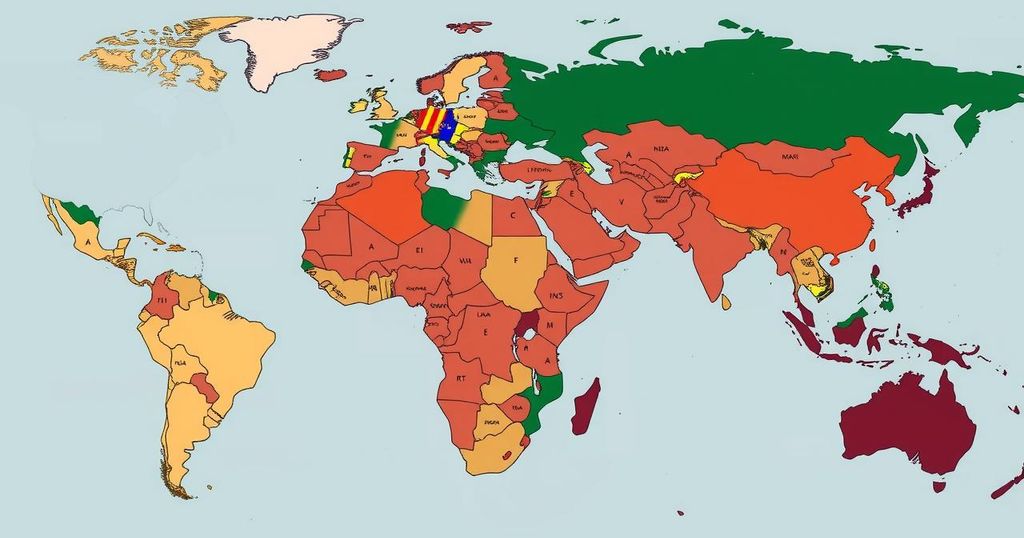In 2024, elections across Africa yielded mixed results: some ruling parties retained power, while incumbents in several nations faced unexpected defeats. Comoros, Mozambique, Namibia, and South Africa experienced political turmoil, while Botswana welcomed a new opposition leader. In contrast, Rwanda maintained its status quo with Kagame, and Ghana and Senegal saw remarkable electoral outcomes amidst economic concerns and political challenges. Meanwhile, military regimes in the Sahel delayed elections, highlighting ongoing democratic struggles.
In 2024, numerous African nations engaged in presidential, parliamentary, or local elections, revealing a mixed outcome among ruling parties across the continent. In Comoros, President Azali Assoumani secured a fourth term amid violent opposition protests that followed the election results. Mozambique experienced similar discontent as Frelimo party retained authority after 50 years, causing unrest despite the support for challenger Venancio Mondlane.
Namibia’s SWAPO party also maintained control, electing its first female president, Netumbo Nandi-Ndaitwah, though the legitimacy of the elections was questioned. Conversely, Botswana marked a significant political shift with the election of Duma Gideon Boko, the first opposition leader in nearly six decades. South Africa’s African National Congress failed to gain a majority, leading to a coalition government for the first time in its history.
Rwanda’s President Paul Kagame won nearly unanimously, prompting debate over electoral credibility due to the lack of genuine opposition. In West Africa, President John Mahama returned to power in Ghana, defeating the ruling party amid economic concerns, while Senegal elected Bassirou Diomaye Faye as the youngest president following a turbulent political landscape.
In contrast, electoral processes in Mali and Burkina Faso were postponed, reflecting the continued grip of military regimes in the Sahel region and raising alarms about the erosion of democratic principles. The situation in these nations highlights a broader trend of evolving political landscapes across Africa as some parties thrive while others face significant setbacks.
The article discusses the outcomes of the 2024 elections in various African countries, showcasing the resilience and volatility of political systems across the continent. While some ruling parties successfully retained power, others faced unexpected challenges and setbacks. The piece highlights the importance of these elections as part of a larger narrative about democracy, governance, and public sentiment in Africa.
In conclusion, the 2024 African elections illustrated contrasting political dynamics, with some ruling parties successfully holding on to power, while others faced significant defeats amid popular opposition. The events underscore the complex relationship between governance, public expectations, and the ongoing struggles for democracy across the continent, especially in countries experiencing instability and military influence.
Original Source: www.voanews.com






